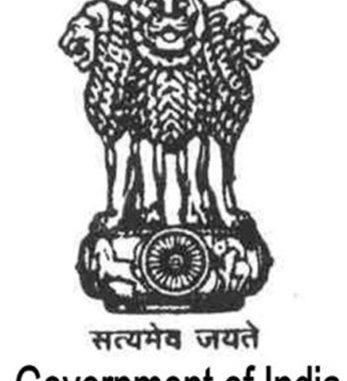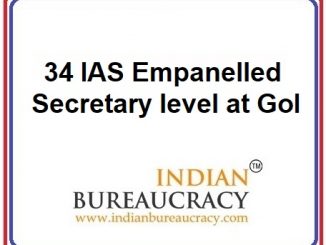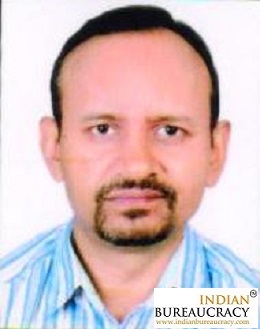
National Conference of Chairman and Chief Executive Officer of State Waqf Boards got underway.Inaugurating the conference Dr. Najma Heptulla, the Union Minister for Minority Affairs expressed concerns over indifferent attitude of some of the State Waqf Booards.The Minister said Central Waqf Council is the Advisory cum regulatory body to oversee the functioning of the State Waqf Boards and due administration of the Auqaf across the country. The main objective of the Cnetral Waqf Council is to safeguard the interest of the Waqf and to bring transparency in the affairs of the Auqaf. The annual conference provides us the platform to share our previous year’s experiences in connection with waqf administration and to chalk out strategies to further improve the same. Our aim is to take up the issues directly with State Waqf Boards as they are the administrative unit, so that the various problems faced by the Auqaf across the country are comprehended and remedial steps be taken to resolve them too.
The Waqf Act 1995 as amended has provided significant provisions for completion of survey of the Auqaf, to deal with illegal encroachment, for protection of Waqf Properties from alienation, for the constitution of the three- member waqf tribunals etc. The Act further strengthened the role of the Central Waqf Council giving it powers to issue directives to the State Waqf Boards and the State Governments as the case may be. Hence the members need to study the new provisions and be ready to take up new challenges. The representative of the Waqf Boards, the Chairmen and the Chief Executive Officers are expected to ensure the protection, safety and retrieval of the Auqaf for which the Waqf Boards have come into existence and let the Auqaf serve its benign objective of charity. The Central Waqf Council and even my Ministry have engaged with the Waqf Boards and the State Governments on several occasions by writing letters and by organizing seminars and conferences. Nevertheless, important provisions of the Act such as survey of the Waqf properties, constitution of Waqf Tribunals, framing of Rules & Regulations, timely re-constitution of State Waqf Boards and appointment of full time Chief Executive Officer etc have not been implemented or are partly implemented by many State Waqf Boards and State Governments. As a resulf, no major changes have taken place in the Boards.
It should be noted that the Survey of Auqaf was not completed in any state except in two union territories of Chandigarh and Dadra & Nagar Haveli. Based on such experiences, the provisions of the Waqf Act, 1995 were amended by The Wakf (Amendment) Act, 2013 which came into force on 1stNovember, 2013. As per section 5 (1A) of the Act, survey of Auqaf should have been completed within one year. But unfortunately, it is not completed in any of the states. I am told that as on date Survey commissioners have been appointed only in 18 States covering 20 boards out of the 31 State Waqf Boards.
Similarly, most States have not established the three members Waqf Tribunals as provided for in the Act. As you may be aware, the Supreme Court has recorded its serious exception on the issue and has directed the State Govts. to constitute the three member tribunals within four months from the date of judgment ie, 15 December, 2015. I am told that so far only 14 Waqf tribunals have been established covering 16 SWBs. Only a proper survey will give us information about the number, value and the current status of the waqf to understand whether it is free or encroached, generating proper income or not and whether it is properly developed or not. Similarly, the delay in establishing the Waqf Tribunal is also adversely affecting the administration of the Auqaf.
Some of the State Waqf Boards (SWBs) have not been remitting the mandatory 1% contribution to the Central Waqf Council (CWC) regularly. Needless to mention, this amounts to a violation of the provisions of the Act. Similarly, substantial loan outstanding due to CWC also has not been remitted by the loanee waqf. I would, therefore, appeal to the State Boards to fulfil their obligations under the Act more seriously and promptly.
To increase the income of the Auqaf and to fairly streamline the leasing of the auqaf the Govt. of India has made The Waqf Properties Lease Rules, 2014 and it is expected that the Boards should lease the properties as per the policy laid down and let the achievement be in the public domain as there are demands from various corners for the same. It should be assured by the Waqf Boards today that the follow up proceedings of the Council will be suitably responded to. It has been genuinely felt that there should be a stringent legislation to deal with unauthorized occupation and encroachment on the Waqf properties across the country since the provisions of the Waqf Act, 1995 have not been found to be effective. Let me assure you that our government is committed to curbing the menace of illegal occupation of Waqf properties and is in the process of bringing a standalone legislation to be called “The Waqf Properties Eviction of Unauthorised Occupant Bill” along the lines of Public Premises (EOU) Act.
Besides the challenges mentioned above, there are other contentious issues like computerization of the records of the State Waqf Boards. This scheme which has been implemented by our Ministry with the involvement of the Central Waqf Council will definitely serve the larger interest of proper administration of the Auqaf. We need to speed up the process to complete the remaining work of the scheme within the recommended timeline. The Central Waqf Council has been implementing a scheme for developing the Waqf properties since 1974-75 with the annual Grant-in-Aid received from the Ministry. The Scheme has helped a number of Waqf institutions to develop their properties on commercial lines to augment their income for the welfare of the community. More than 16 states have benefited from it and over 200 projects have been funded. In this regard the Government has taken another initiative to speed up the development of the Waqf properties by establishing a separate specialized corporation- the National Waqf Development Coporation (NAWADCO). The State Waqf Boards thus have two duties one to pay amount of share to NaWADCO and to provide details in respect diligently discharge their duties for the progress of our community. Let me also say that Members of the Council may like to visit some of the projects to ascertain their contribution towards community welfare. With this, I conclude my words and with for a meaningful discussion on the Waqf Act, 1995 as amended and other issues pertaining to Auqaf.
,Sh. Rakesh Mohan ,JS Waqf, Ministry of Minority Affairs informed about the various measures taken to improve and strengthenthe Waqf bodies.







Leave a Reply
You must be logged in to post a comment.